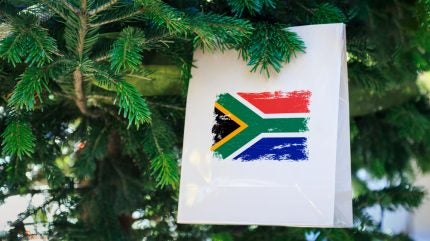
In recent years, South Africa has witnessed a significant shift towards sustainable packaging, reflecting a global trend to minimise environmental impact.
Sustainable packaging involves using materials sourced from renewable resources, designed for recyclability or compostability, thereby reducing their ecological footprint.
Market growth driven by multiple factors
Between 2018 and 2023, South Africa’s sustainable packaging market experienced notable growth.
According to a report by leading data and analytics company GlobalData, the market’s total revenues reached $5.8bn in 2023, representing a compound annual growth rate (CAGR) of 4.5% during this period. Additionally, market consumption volume increased with a CAGR of 3.8%, reaching 11.3 million tonnes in 2023.
Several macroeconomic factors have influenced this growth. The increasing global population has heightened demand for consumer goods, necessitating more packaging solutions.
The rise in e-commerce activities has further propelled the need for efficient and sustainable packaging. Moreover, growing concerns about climate change, coupled with strict government regulations and heightened consumer awareness, have pushed industries towards eco-friendly practices.

US Tariffs are shifting - will you react or anticipate?
Don’t let policy changes catch you off guard. Stay proactive with real-time data and expert analysis.
By GlobalDataFor instance, South Africa’s online retail sector grew by 25.3% in 2022, reaching a value of $785.7m, underscoring the expanding market for packaging solutions.
Leading players championing sustainability
Several prominent companies in South Africa have embraced sustainable packaging practices:
- Woolworths South Africa: Since 2007, Woolworths has been at the forefront of sustainability initiatives with its ‘Good Business Journey’. The company set ambitious targets, including achieving zero packaging waste to landfill by 2022 and phasing out single-use plastic shopping bags by 2020. It also introduced in-store recycling vending machines to promote recycling among consumers.
- Mondi: A multinational packaging and paper group with roots in South Africa, Mondi has been actively involved in sustainable packaging solutions. The company focuses on producing packaging materials that are recyclable and sourced from renewable resources, aligning with global sustainability trends.
- Nampak: As Africa’s largest diversified packaging manufacturer, Nampak has integrated sustainability into its operations. The company produces packaging in glass, paper, metals, and plastic, emphasising eco-friendly practices and materials.
Challenges and future outlook
While significant progress has been made, challenges remain. The need for robust recycling infrastructure is crucial to handle the increased volume of recyclable materials.
Additionally, educating consumers about the importance of recycling and proper disposal methods is essential to ensure the effectiveness of sustainable packaging initiatives.
Looking ahead, the South African sustainable packaging market is poised for continued growth.
With ongoing efforts from both the private and public sectors, the country is set to further its commitment to environmental sustainability, ensuring that packaging solutions meet the demands of a greener future.



